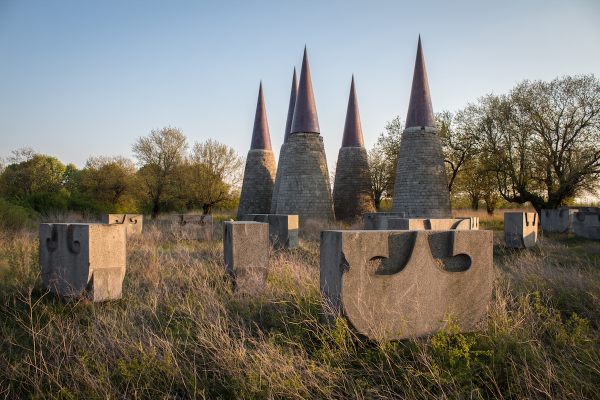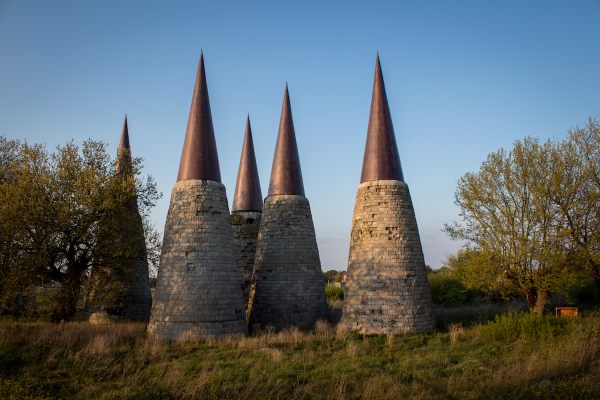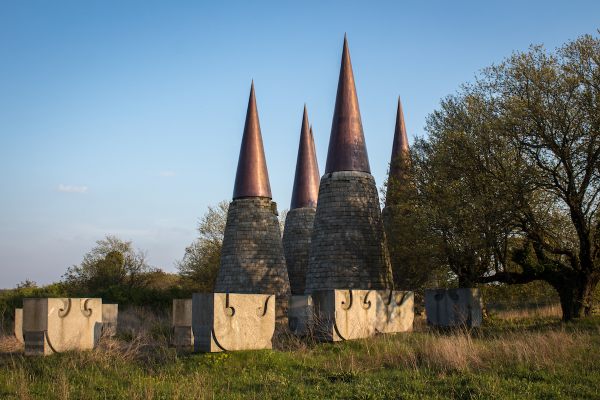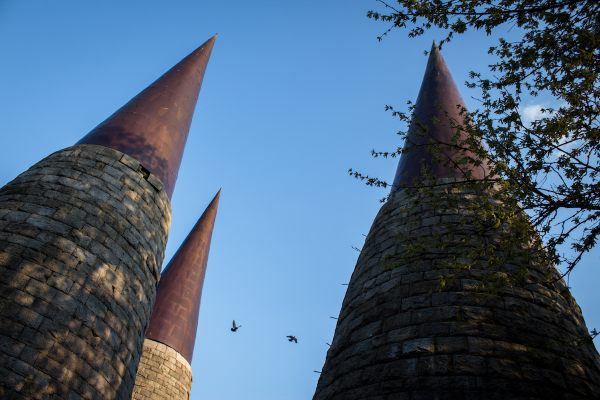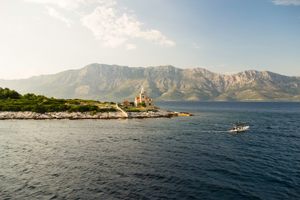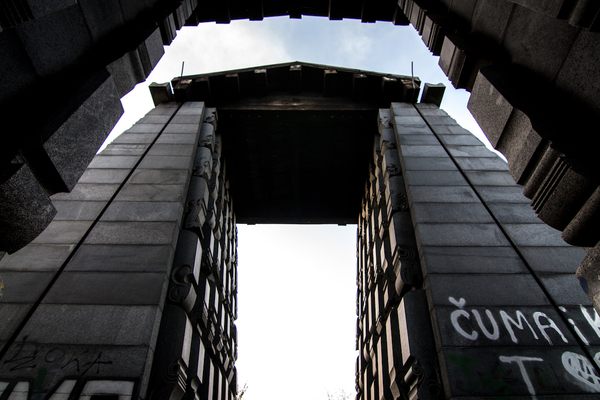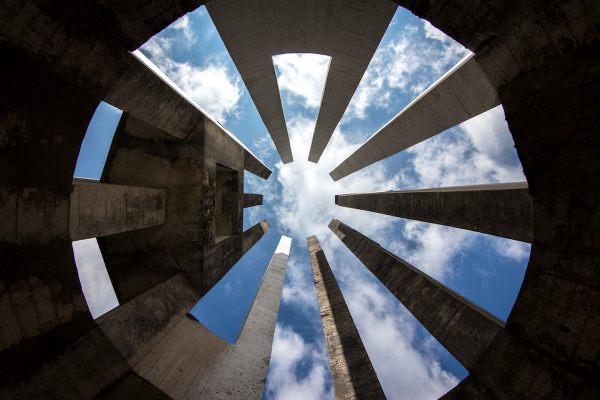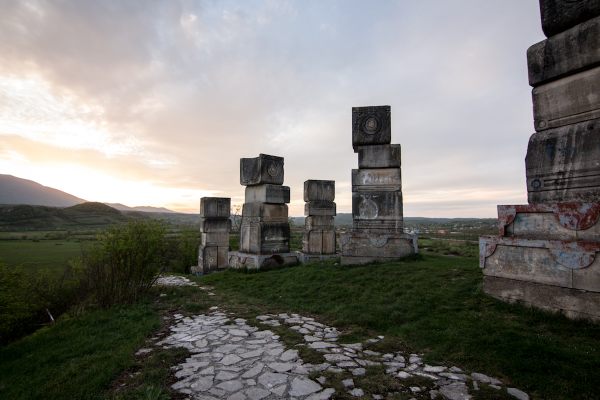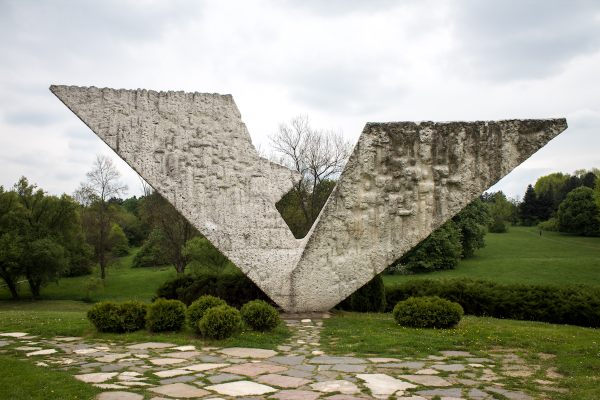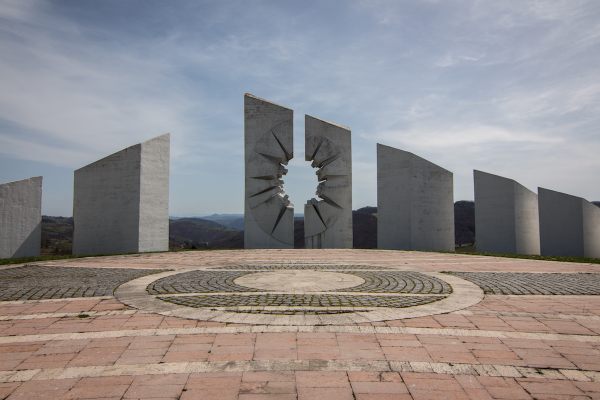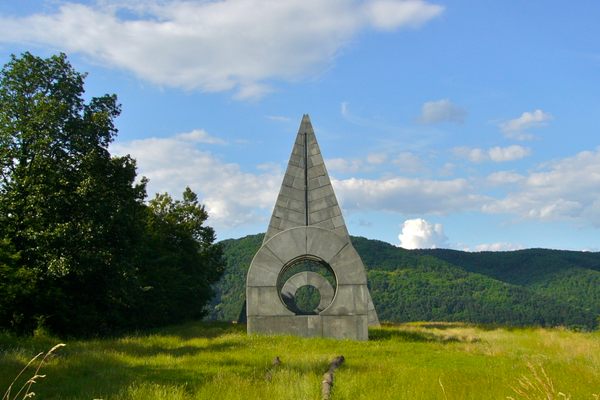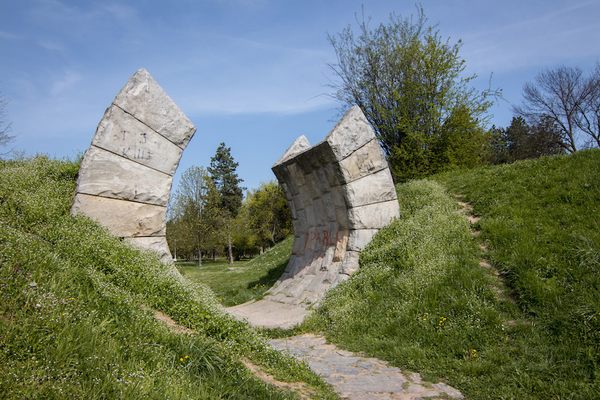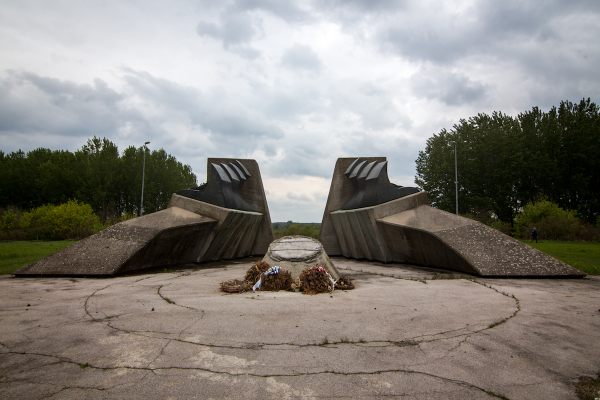About
Built to commemorate the events of World War II, the Dudik Memorial Park in Vukovar, Croatia, narrowly survived another brutal war to stand today as a somber, surreal tribute to the victims of fascism.
Between July 1941 and February 1943, as many as 455 civilians were executed at Vukovar, by Croatia’s Nazi-backed "Ustaše" regime. Anti-fascists, revolutionaries, and other perceived enemies of the regime were taken to the edge of town and killed in this small grove between the mulberry trees.
The tide of war turned, though, and Vukovar was liberated from Ustaše control in April, 1945.
Decades later, in 1980, a Yugoslav-era memorial park was opened in this place of former execution. Designed by the renowned architect Bogdan Bogdanović, it consisted of five conical stone towers, rising to a height of 18 meters (60 feet) and tipped in copper. Around the cones, 27 stone blocks were carved into seemingly abstract shapes. They represented boats, according to the architect, to symbolise Vukovar’s historic relationship with the Danube River.
Unfortunately though, the town of Vukovar hadn’t seen its last battle. Located close to the border with Serbia, the town became a flashpoint during the 1991-1995 Croatian War of Independence. Between August and November 1991, the 87-day Siege of Vukovar left the town in ruins. At least 20,000 citizens fled, many were killed, and an estimated 90 percent of Vukovar's houses were destroyed.
The Dudik Memorial Park was badly damaged in the combat. Built by Yugoslavia, it had become an unwelcome symbol of the past now that Croatia was fighting to get away from Yugoslav rule. It survived the conflict, but for many years after the war these five cones stood abandoned.
More recently, there have been efforts to begin restoring the site; the copper tips were refurbished, for example, beginning in 2013. But even today the site feels wild, rugged and unknown. The stones "boats" hide, tangled in the long grass, while pigeons nest in the gaping holes that have been punched through the cones by shells and gunfire.
Related Tags
Balkans Road Trip: Serbia, Croatia & Bosnia and Herzegovina
Traverse the beauty and history of the Balkans through locals' stories.
Book NowCommunity Contributors
Added By
Published
October 5, 2017
